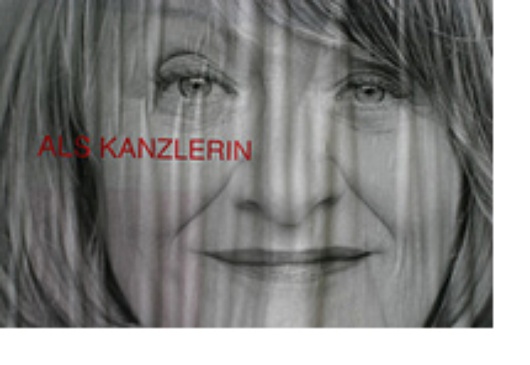Feminism in Europe
Published on
Translation by:
 sarah pybus
sarah pybus
Long a part of the mainstream, but women have not gained ground since the eighties. Many dismiss the feminist concept completely, others see 'new feminism' taking a step backwards

Deathproof (Photo: The Weinstein Company)
Quentin Tarantino has them all: macho men and wimps, naive blondes and death defying stunt women. 'Some see me as a feminist,' the cult American director is quoted by German television channel 3sat as saying in an article about his latest film Death Proof. The notion of Tarantino as a champion of women’s rights sounds strange, considering that four women suffer at the hands of excessive machismo in the first half of the film. However, perhaps this idea reflects a general moment of confusion. The world has become complicated. The demands made by the women’s movement of the seventies and eighties blurred perceptions of 'woman' and 'man', the 'queer' theory from the States spilled over into Europe, and thus existing concepts were undermined and space was cleared for new definitions.
Vague concept
There is much to suggest that the revolution may only have happened in people’s heads and not in reality. There is no doubt that feminism has arrived in society and many factors confirm it. Women can study in Europe virtually problem-free. They snag increasingly well-paid jobs. They occupy and profit from the way paved for them by the women who championed their cause. Added to this is the increasing media presence of female politicians, giving the impression that equality in the workplace has already been achieved. Angela Merkel in Germany, Ségolène Royal as a presidential candidate in France, Yulia Timoschenko in the Ukraine: women as powerful figures.
 Female politicians on European front pages work well, but obscure the fact that only 12 out of 122 presidents worldwide are women. Even if feminism has become part of the establishment in the meantime, the younger generation of women has barely contributed until now. Alice Schwarzer, the token German feminist, explains in German weekly Die Zeit: 'The ‘daughters of feminism’ have taken emancipation at its word. And then they hurt their heads on the glass ceiling when pursuing their careers - or never even leave the nursery.'
Female politicians on European front pages work well, but obscure the fact that only 12 out of 122 presidents worldwide are women. Even if feminism has become part of the establishment in the meantime, the younger generation of women has barely contributed until now. Alice Schwarzer, the token German feminist, explains in German weekly Die Zeit: 'The ‘daughters of feminism’ have taken emancipation at its word. And then they hurt their heads on the glass ceiling when pursuing their careers - or never even leave the nursery.'
Indisputable figures
The figures confirm her statement: with a wage differential of approximately 22% in a comparison by the EU, Germany is one of the countries in which equality still has a long way to go. The The Norwegian Association for Women's Rights ('Norsk Kvinnenskasforening') claims that even the situation in their native country, a model of equal opportunity, is a sham. The labour force participation rate may be equal for women and men, but only slightly more than half of women work full-time and earn less than men on average.
The real progressive political steps, if any exist, are currently being made in Spain. Feminist voices were long suppressed in the Catholic country –  gender equality was only translated into law in 1977. However, the equality law ('Ley de Igualdad') set in motion on 23 June 2006 by the Socialist head of government José Luis Rodríguez Zapatero is generally seen as an important step on the road to equality. The law prescribes that 40% of both genders must participate in all state elections and serve on the board of directors for companies listed on the stock exchange. Zapatero had already set a good example when he took office in 2004 and filled his cabinet with an equal number of men and women. Sarkozy followed the same model with his colleagues.
gender equality was only translated into law in 1977. However, the equality law ('Ley de Igualdad') set in motion on 23 June 2006 by the Socialist head of government José Luis Rodríguez Zapatero is generally seen as an important step on the road to equality. The law prescribes that 40% of both genders must participate in all state elections and serve on the board of directors for companies listed on the stock exchange. Zapatero had already set a good example when he took office in 2004 and filled his cabinet with an equal number of men and women. Sarkozy followed the same model with his colleagues.
Feminism is 'out'
However, leading European feminists, such as the French philosopher Elisabeth Badinter, do not see quotas as an effective means of improvement, at the most they are a crutch. Badinter criticises the fact that quotas allow the gender divide to still find a way into the law. And she points out the problem with feminism today: young women constantly seek the protection of the law, rather than changing the situation through 'a desire to challenge.'
The new generation of women seems to frown upon the concept of feminism. There are exceptions; French authors such as Marie Nimier, Catherine Breillat and Virginie Despentes write about pornography, the democratisation of contraception and abortion is ever closer, and Ursula von der Leyen, the German Minister for Family Affairs, provides an example of how to balance her seven-child family and politics. On the whole, however, young European women use the word 'feminism' only when absolutely necessary.
Nevertheless: when 'woman' realises that she isn’t as good at multitasking as she thought, and when Eva Herman, the German former newsreader, swamps the literary market with her counterproductive novels about how 'a woman’s place is in the kitchen' – a blow for feminism – the debate must be re-ignited. Ego-feminism will not suffice. Perhaps creating a new term will put things right. Perhaps 'man and woman' of the 21st century should go a step further - and address the topic of equality as partners.
Photos: homepage (diego_cervo/ istock), Deathproof (The Weinstein Company), Alice Schwarzer (Simon Müller/ Flickr), Gleichberechtigung (©diego_cervo/ istock)
Translated from Europa: wie hälst Du’s mit dem Feminismus?


